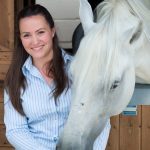
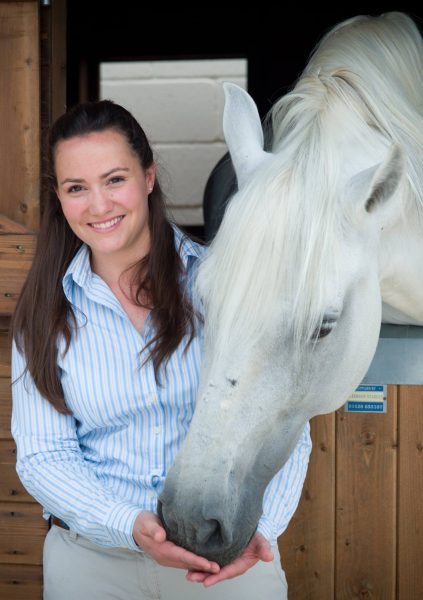
News


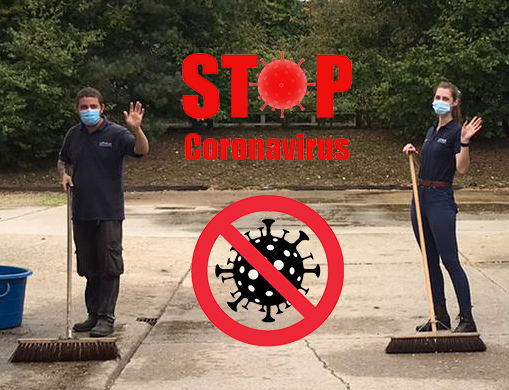
Housevet Positions
Applications are invited for the next 3 housevet positions starting in December 2020, early Spring and mid-Summer 2021.
The Liphook Equine Hospital is an internationally renowned equine referral hospital with state-of-the-art facilities based in Hampshire in the South of England. The hospital has 10 RCVS and EBVS specialists who are supported by the housevets a diagnostic imaging clinician, medicine resident and approximately 70 nursing and support staff and a large on-site laboratory. The hospital team works closely with the large ambulatory team of 11 vets who provide first-opinion care to horses in Hampshire, Sussex, Surrey and beyond. More details of the practice are available on our website www.TheLEH.co.uk.
Currently, we employ a team of four Housevets who work for a fixed -term of 18 months. The housevets work as a team alongside the hospital clinicians and nurses. The housevets’ prime duties include anaesthesia, intensive care monitoring and the day to day management of the 50 hospitalised in-patients, including both diagnostic procedures and treatments. Orthopaedic investigations, including nerve blocks, are an important part of the role and, in addition, there will be ample exposure to other diagnostic techniques (such as radiography, scintigraphy, ultrasonography and MRI) as well as to colic and lameness work up. The housevets work under the direction of recognised Specialists in both Surgery and Medicine and are well supported by a large team of excellent nurses, who work shifts to provide full 24 hour care.
The position is challenging and the hours are long but there is a tremendous amount of experience to be gained by applicants with suitable enthusiasm and a desire to learn. Accommodation is provided in a house in a nearby village. As this house is shared with the other members of the housevet team it is, unfortunately, not suitable for couples. No pets are allowed in this accommodation. The out of hours rota is shared equally between all members of the housevet team and the duty housevet is required to stay on site, at nights and weekends, in a self-contained flat. The team of housevets work a shared rota for their part of the out of hours system whilst other veterinary surgeons in the practice are responsible for the ambulatory calls and for the surgical and medical rotas. Duty nurses take all phone calls outside office hours.
These positions are offered for a fixed term contract of 18 months. Following the term as a housevet it is not expected that any vacancies will occur in the practice for assistantships but we have found that, in past years, our housevets have had little difficulty finding suitable employment either in practice or in residency programmes. Indeed, there seems to be a widely held view in the profession that our housevets have received some of the best post-graduate training and clinical exposure currently available in the UK.
We are looking for enthusiastic team players to join our friendly but hardworking Hospital team, who are all dedicated to providing first class care to the horses, ponies and donkeys entrusted to our care. The majority of the hospitalised cases are referred patients but we also have a large first opinion clientele and there may also be a limited opportunity to become involved directly with first opinion outpatient cases during your stay. As you will be in frequent contact with owners and referring veterinary surgeons, a good, confident and sympathetic manner with both clients and professional colleagues is essential. For this reason, we look for those who have been qualified for at least a year, preferably more, and candidates who have not previously worked in practice in the UK for at least one year or who do not have English as their mother tongue may be at a disadvantage in the selection process, as fluent spoken and written English is essential.
In addition to an above average salary and rent-free free accommodation we also provide a car allowance, house and mobile phone, uniform, private health insurance and a free private accident/disability insurance scheme. More importantly perhaps, we also offer good working conditions and, we believe, a happy and supportive environment. There is ample scope for your professional development and continuing further education within the practice.
Applicants are requested to send in a covering letter and a CV to Barbara.Thornley@theLEH.co.uk. . Closing date for applications Monday 31st August 2021.


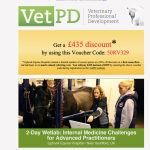
Due to expansion of our ambulatory team, we are looking to recruit a highly motivated and experienced equine ambulatory vet. A minimum of 5 years’ experience in equine practice is required. We have a diverse client base but with an increasing number of high level competition horses and stud clients. Experience in all aspects of equine ambulatory work is essential and specific expertise and knowledge of reproduction is of particular interest. Our ideal candidate will either have or aspire to achieve a post graduate qualification in their chosen field. Excellent client communications skills and ability to work as part of a team are vital.
We currently have a team of ten equine ambulatory vets (including 7 RCVS certificate holders) with the most up to date mobile equipment such as fully wireless DR radiography systems, digital ultrasonography, endoscopy, shockwave, power dental equipment etc. The ambulatory team has full back up of our tier 3 hospital which includes 9 RCVS specialists and full range of facilities such as Scintigraphy, CT and MRI.
This is a fantastic opportunity for the right candidate to further develop their skills and advance their career. The practice offers an excellent working environment with a highly competitive package.
If you are interested in applying for the position please submit an application to Carrie Goodbourn, Business Director, Liphook Equine Hospital, Forest Mere, Liphook, Hants, GU30 7JG or by email to carrie.goodbourn@theleh.co.uk including your CV and a covering letter. Applications should be received no later than Friday 14th August 2020. For an informal discussion please call Carrie on 07917851129.
Due to high levels of interest we will not be accepting any further applications for the time being.
Liphook Equine Hospital is a specialist equine veterinary practice providing expert care for horses, ponies and donkeys. We are looking to recruit two additional members of staff to join our busy hospital admin team. We are seeking one person to join on a full time basis Monday to Friday to cover maternity leave on a fixed term contract. The second individual is required to work afternoons only, Monday to Friday. This position is also being offered initially on a fixed term contract basis. Both positions require individuals to take a share of working Saturday mornings for which additional payment and time off in lieu is offered.
Due to high levels of interest we will not be accepting any further applications for the time being.
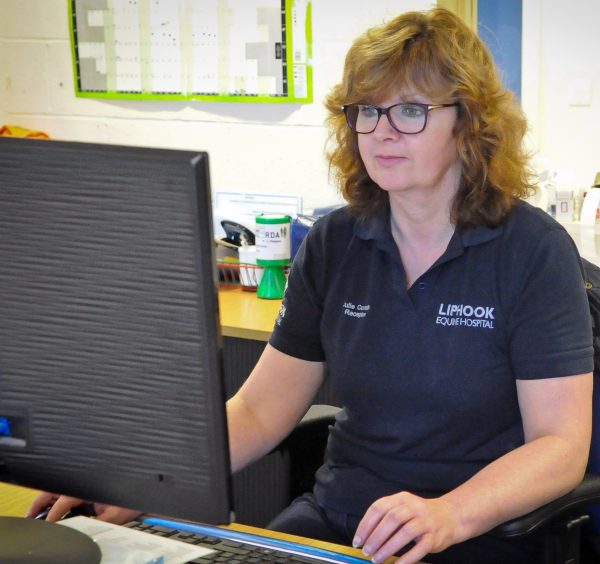

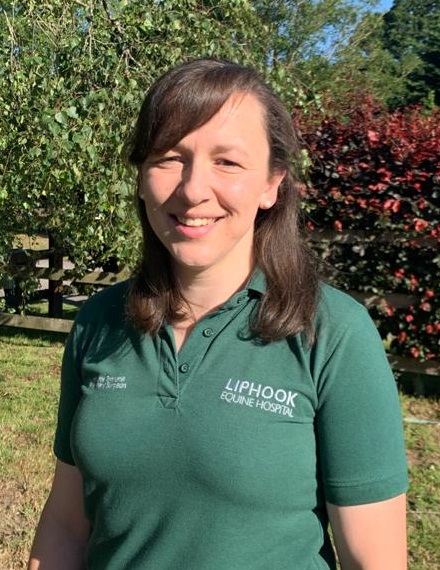
As the Covid 19 lockdown period continues, the guidance from our governing bodies has been updated due to the extended period of time during which services will be restricted. As a result,with effect from Tuesday 14th April, we will be following the updated advice from our governing body. We will now be performing RISK ASSESSED work that is vital for equine health and welfare and this will include equine vaccinations, where the deadline is due imminently.
It is now considered appropriate to perform vaccinations as it is important to minimise the risk of an equine outbreak during this extended period of lockdown but in all circumstances this maywill only be done where it is considered safe to do so. Permitted vaccinations will not include 6 month competition booster vaccinations which are not deemed to be essential at this current time.
Safety and distancing measures for vaccinations and other services where applicable will include :
– ensuring that your horse is tied up waiting prior to arrival
– the passport should be left out ready beside the stable/horse
– where a client is present this should be ONE person per visit (strictly no children or pets are to be present)
– a physical distance of 10m will be maintained where possible
– we will liaise with you across a 10m distance or by telephone
– if you are self-isolating or confirmed to have Covid 19 you SHOULD NOT be present at all and we will consider bringing a second practice member to assist safely
*IF YOU THINK THAT SOCIAL DISTANCING CANNOT BE MAINTAINED PLEASE DISCUSS THIS WITH US BEFORE WE ARRIVE*
This does not mean that we can return to business as normal and we will assess all work remotely before determining if a visit is necessary. Wherever possible work will be by telemedicine consultations/phone calls. If work is non-essential and in the short term, no significant impact on equine welfare is likely to occur, then that work should continue to be delayed in line with the current RCVS advice. (This will include routine dental work, pre-purchase examinations, low grade lameness and poor performance investigations).
We are doing everything we can to safeguard human and equine health and welfare and to comply with the government guidelines. We are keen to provide your horses with the care they may need but we will ensure at all times that we can ensure the safety of our vets and nurses, your own health and that of the general public. Thank you for all your help in complying with these regulations and for your loyalty to the practice in these difficult times.
We have great respect for our medical colleagues and we are extremely concerned about the continuing pressures that the coronavirus outbreak is putting on the NHS and the most vulnerable members of our society. It is imperative that we continue to protect our staff, clients and their families and to be socially responsible and we will do everything we can to continue to uphold the directions of the government to help control the spread of Covid-19.
This advice will be kept under constant review and updated in line with government guidelines.
News